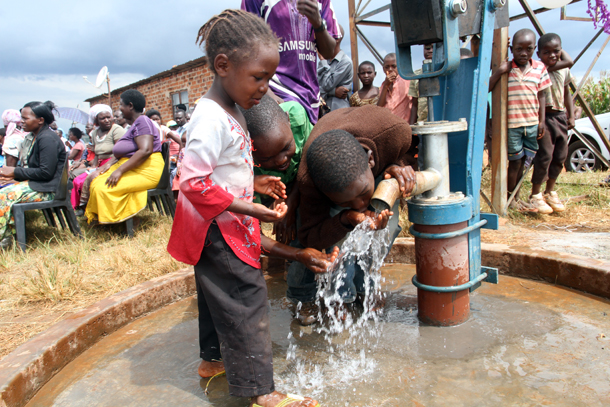
Vice-President Emmerson Mnangagwa has said women and children bore the brunt of water shortages and endured walking long distances to get the precious commodity.
By Phyllis Mbanje
Officially opening the water resources and infrastructure investment conference in the capital yesterday, Mnangagwa lamented the lack of access to clean potable water for the most vulnerable groups in the country.
“Women and children walk long distances in search of water. This has seen people in urban areas going for days and even weeks without water and at times, relying on unsafe water sources,” Mnangagwa said.
Most areas in Harare have been experiencing extreme water shortages for years now, raising fears of waterborne diseases that thrive in unhygienic conditions.
Residents have resorted to drilling boreholes in a bid to counter the water challenges, but this has been said to deplete the water table.
Most of these boreholes have not been sanctioned by authorities. The worst affected are those who have moved onto new housing developments and settlements which do not have infrastructure for water.
“I am aware of the loss of lives to waterborne diseases. Provision of water should then remain a priority for the government,” the VP said.
- Chamisa under fire over US$120K donation
- Mavhunga puts DeMbare into Chibuku quarterfinals
- Pension funds bet on Cabora Bassa oilfields
- Councils defy govt fire tender directive
Keep Reading
Lumping blame on the former colonial masters, the Vice-President said they had inherited a faulty system.
“Zimbabwe still has gaps that we inherited from the skewered system from former colonial masters. We need to address that,” he said. There are vast water sources in the Zambezi River basin and Save catchment area that could be effectively harnessed for optimal use in Zimbabwe.
Agriculture and Irrigation Development minister Joseph Made said the farming sector had suffered greatly from the erratic rainfall pattern and that there was need to promote irrigation systems. “We have a 25-year-old phased plan whose aim is to correct historical imbalances in as far as the land issues are concerned,” Made said.
He said rehabilitation of irrigation schemes was key in addressing issues of food security.
The two-day conference, which is a first for Zimbabwe, has drawn delegates from across the globe including investors wishing to work with the government to foster public-private partnerships in developing robust water infrastructure.
“We are trying to mobilise the necessary investments towards water infrastructure and as a country we need to develop water sources,” Environment, Water and Climate minister Saviour Kasukuwere said.











